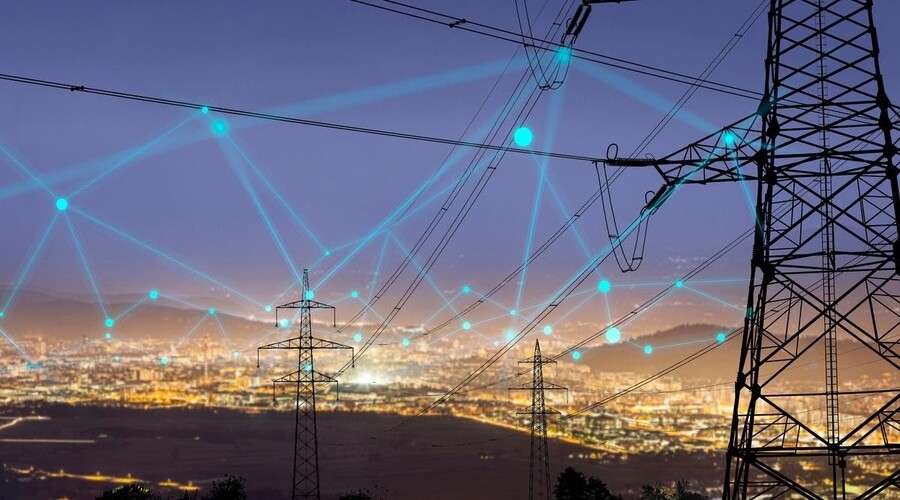Blockchain technology has the potential to revolutionize the way energy is traded and consumed. The traditional energy trading system is often centralized and dominated by large corporations, which can limit competition and transparency. Blockchain offers a decentralized and secure way to track and trade energy, allowing for more efficiency and cost savings. In this article, we will explore the potential of blockchain for the future of energy trading.
Introduction
The energy industry is in the midst of a transformation, driven by technological innovations and the need to transition to a more sustainable and decentralized energy system. The rise of renewable energy sources, such as solar and wind power, is changing the way energy is generated, stored, and distributed. At the same time, new technologies, such as blockchain, are providing opportunities for more efficient and secure energy trading.
The current state of energy trading
The current energy trading system is often centralized and controlled by large energy companies, which can limit competition and transparency. This can result in higher costs for consumers and less efficient energy distribution. Traditional energy trading involves complex systems of contracts, intermediaries, and regulatory frameworks, which can make the process slow and expensive. The benefits of blockchain for energy trading
Blockchain technology offers several advantages for energy trading. One of the key benefits is decentralization, which allows for a more transparent and democratic system. This can lower transaction costs, increase efficiency, and create more opportunities for small-scale energy producers and consumers.
Another benefit of blockchain is security. Blockchain’s decentralized ledger ensures that all transactions are recorded in a tamper-proof and transparent way, making it difficult for bad actors to manipulate the system. This can increase trust in the energy trading system and reduce the risk of fraud and errors.
Decentralized energy grids
One of the most promising applications of blockchain for energy trading is in the creation of decentralized energy grids. Decentralized energy grids use blockchain to allow for peer-to-peer energy trading between producers and consumers, without the need for intermediaries. This can lower costs, increase efficiency, and provide more control and autonomy for energy users.
Smart contracts for energy trading
Smart contracts are self-executing contracts that are programmed to automatically execute the terms of an agreement. They can be used to automate energy trading, allowing for more efficient and secure transactions. Smart contracts can be used to track the generation and consumption of energy, and automatically trigger payments and settlements.
Energy trading platforms and marketplaces
Blockchain-based energy trading platforms and marketplaces can create more opportunities for small-scale energy producers and consumers. These platforms allow for peer-to-peer energy trading, bypassing the need for large energy companies and regulatory frameworks. They can also provide real-time information about energy production and consumption, allowing for more efficient energy management.
Blockchain and renewable energy
Renewable energy sources, such as solar and wind power, are a perfect match for blockchain technology. Blockchain can help to track the generation and consumption of renewable energy, creating a more transparent and efficient system. It can also incentivize the production and consumption of renewable energy through the use of tokens or other incentives.
Challenges and limitations of blockchain for energy trading
Despite the potential benefits of blockchain for energy trading, there are also challenges and limitations that need to be addressed. One of the biggest challenges is scalability, as blockchain technology is still in its early stages and may not be able to handle the large volumes of data that are required for energy trading on a global scale. Another challenge is regulation, as there are still many legal and regulatory issues that need to be addressed before blockchain-based energy trading can become mainstream.
Another limitation of blockchain is energy consumption. Blockchain relies on a proof-of-work (PoW) consensus mechanism, which requires significant computational power and energy consumption. This can be a concern for energy-intensive industries, such as energy trading. However, there are also alternative consensus mechanisms, such as proof-of-stake (PoS), which require significantly less energy.
One of the most significant benefits of blockchain technology in energy trading is its ability to enable greater integration of renewable energy sources into the grid. As the world moves towards a more sustainable energy system, renewable energy sources such as solar, wind, and hydroelectric power are increasingly being adopted. However, these sources of energy can be intermittent and difficult to predict, which poses challenges for energy grid management.
Blockchain can address this issue by enabling greater transparency and control over energy trading, allowing for more efficient use of renewable energy sources. For example, blockchain-based energy trading platforms can allow consumers to buy and sell excess energy produced by their solar panels or wind turbines, making it easier for them to participate in the renewable energy market.
Blockchain can also incentivize the production and consumption of renewable energy through the use of tokens or other incentives. For example, energy producers can receive tokens for generating renewable energy, while energy consumers can receive tokens for using renewable energy. These tokens can then be used to pay for energy bills or traded on energy trading platforms.
Conclusion
In conclusion, blockchain technology has the potential to transform the energy industry by providing a more efficient, transparent, and secure way to track and trade energy. From decentralized energy grids to smart contracts and energy trading platforms, the possibilities for blockchain in energy trading are vast. As the world continues to transition towards a more sustainable energy system, blockchain technology will play a critical role in shaping the future of energy trading.
